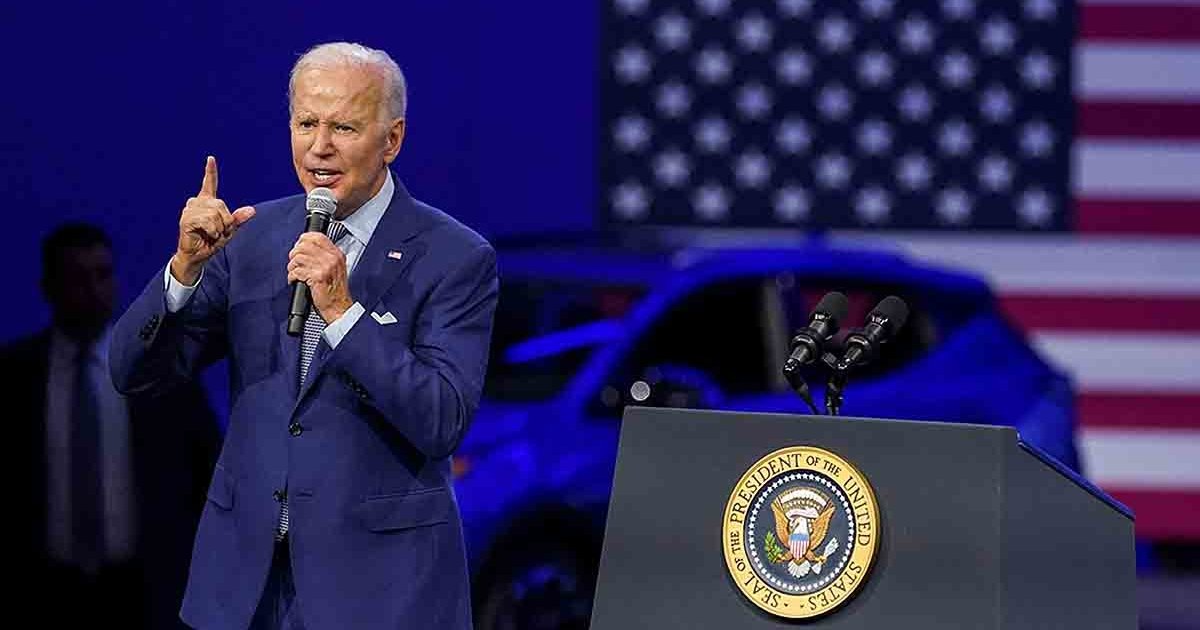
President Joe Biden, a self-titled “car guy,” pushed his vision for an electric vehicle future that positions the U.S. as a leader, creates American jobs and transitions the country to a clean energy economy in remarks delivered Wednesday at the Detroit auto show.
“I believe we can own the future of the automobile market. I believe we can own the future of manufacturing,” Biden said. “American manufacturing is back. Detroit is back.”
Biden’s presence at the event marks his first visit to the Detroit auto show since he was vice president during the Obama administration.
Michigan Gov. Gretchen Whitmer, Detroit Mayor Mike Duggan, UAW President Ray Curry, EPA chief Michael Regan, Transportation Secretary Pete Buttigieg, and Michigan Democratic Rep. Debbie Dingell and Sen. Debbie Stabenow also delivered remarks.
Biden touted his administration’s efforts to boost domestic EV manufacturing, investment and jobs to position the U.S. as a leader and reduce reliance on foreign supply chains.
The president also said his administration has approved funding for 33 states, plus the District of Columbia and Puerto Rico, to build their own EV charging infrastructure through a funding program in the infrastructure law.
“All told, my administration is investing more than $135 billion to advance America’s electric vehicle future,” Biden said. “Our infrastructure law is also helping to make it in America and win the economic race of the 21st century.”
This year’s North American International Detroit Auto Show is the first since January 2019, following cancellations prompted by the pandemic in 2020 and 2021. Only about 10 new vehicles are slated to be unveiled, and many major automakers have opted to skip it altogether.
Biden wants battery-electric, plug-in hybrid and fuel cells to make up 50 percent of all vehicles sold in the U.S. by 2030.
The federal government is leading by example, on track to meet a goal of 100 percent zero-emission light-duty vehicle acquisitions by 2027, according to a White House fact sheet.
Since Biden took office in January 2021, companies have invested nearly $85 billion into the manufacturing of EVs, batteries and chargers in the U.S., according to the fact sheet. That includes investments from Ford, GM, Honda and Toyota, as well as battery suppliers such as Panasonic.
The Alliance for Automotive Innovation, which represents most major automakers in the U.S., says that by 2030 the auto industry will have invested half a trillion dollars globally into electrification.
The president said the recently signed Inflation Reduction Act also will help drive EV adoption by making new and used EVs more affordable.
The law extends the $7,500 tax credit for consumers buying new EVs but adds new restrictions on final assembly, sticker price, buyer income, plus battery component and critical mineral sourcing.
It also creates a new tax credit of up to $4,000 for qualifying consumers buying used EVs that cost less than $25,000.
On the supply side, the law includes a $10 billion investment tax credit to build manufacturing plants for EVs, $2 billion to retool existing plants and up to $20 billion in loans to build new EV manufacturing plants across the U.S.